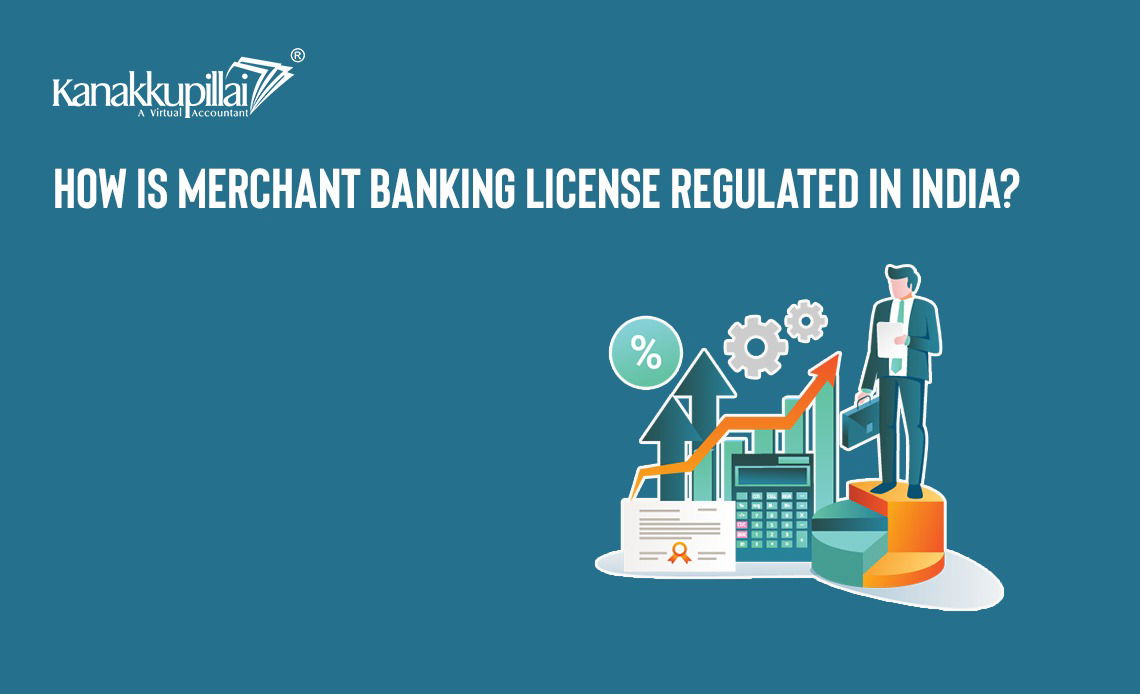The article highlights the industry’s rise as a result of economic changes and analyzes SEBI’s position as the only regulatory organization in India for merchant banking licenses. The primary regulatory framework, known as the SEBI (Merchant Bankers) Regulations, 1992, is designed to supervise licenses, corporate conduct standards, transparency requirements, and public issue regulation. It is subject to periodic adjustments based on market conditions.
The safety and effectiveness of India’s financial system depend heavily on SEBI’s supervision of merchant banking licenses. It guarantees that legitimate businesses follow moral principles and modify laws to satisfy market needs. This is advantageous to businesses and investors alike, underscoring the continued role that merchant banking plays in promoting capital mobility and economic growth in India’s financial systems.
Merchant Banking
The financial services sector, particularly merchant banking, has experienced significant expansion due to India’s economic development. The Securities and Exchange Board of India (SEBI) has set rules to guarantee legal operations in this industry. These rules cover various operations, including capital raising, securities underwriting, portfolio management, and financial advising. These regulations support stability and efficiency in the financial system by offering a thorough framework for monitoring and improving commercial banking activities.
Merchant Banking Regulations in India
In India, the SEBI (Merchant Bankers) Regulations, 1992 set the regulatory framework for merchant banking. Subject to multiple amendments, these regulations aim to align with evolving market dynamics. The key objectives are:
- Licensing Oversight
- Business Conduct Standards
- Transparency Requirements
- Regulation of Public Issues
Securing a Merchant Banking License
To acquire a merchant banking license in India, companies must fulfil specific eligibility criteria and navigate through a comprehensive application process. The fundamental prerequisites for obtaining a merchant banking license encompass:
Eligibility Criteria:
Organizations must intend to apply to be incorporated under the Companies Act of 1956 or in 2013. To meet the eligibility requirements, a minimum net worth of INR 5 crores is required. Moreover, the application procedure requires that at least one full-time director with significant experience in commercial banking operations be included. These requirements ensure that businesses applying for a merchant banking license have the necessary leadership experience and solid financial standing to conduct these kinds of financial transactions.
Application Process:
- Formal application submission to SEBI, furnishing comprehensive details about the entity’s structure, financials, and key personnel.
- SEBI reviews the application and seeks additional information or clarification if necessary.
- Granting of a merchant banking license if the applicant fulfils all eligibility criteria and aligns with SEBI’s requirements.
Ongoing Compliance:
- After obtaining the merchant banking license, following the SEBI regulations in daily activities is crucial. Periodic audits and inspections conducted by SEBI ensure ongoing compliance.
Role of Merchant Bankers
Merchant Bankers guide companies through various financial problems, including capital raising and mergers and acquisitions. Additionally, they might guarantee unsold shares in IPOs by underwriting corporate securities. They guarantee legal and regulatory compliance, conduct due diligence, and help prepare documents. They oversee investor relations and give underwritten securities liquidity. Additionally, some merchant bankers participate in market-making operations, which provide the securities they underwrite liquidity. They play a critical role in controlling the corporate financial environment.
Guidelines for Conduct and Moral Principles
SEBI has developed a comprehensive code of conduct to ensure that merchant bankers maintain integrity and moral behaviour in the business. This code contains important components like:
- Maintaining confidentiality is a duty for merchant bankers to protect private customer data.
- Disclose any conflicts of interest and resolve them.
- Treat every party with respect and honesty when conducting business.
- To deliver accurate and trustworthy information, carry out comprehensive due diligence.
- Make certain that investors are provided with accurate and thorough information.
- In all of your interactions, keep lines of communication open and honest.
- Keep abreast with current advancements in the sector.
- Report any infractions of the code to uphold moral principles and responsibility.
The Development of Regulations for Merchant Banking
India’s commercial banking regulatory environment is changing to meet new challenges and reflect changing consumer preferences. Current advancements include:
- Digital Transformation: To facilitate the digital submission of papers and applications, SEBI promotes the incorporation of technology into merchant banking procedures.
- Improvement of Investor Protection: SEBI has strengthened investor protection by emphasizing more transparent disclosures and improved issuer-investor communication.
- Promotion of Green financing: The rule calls on merchant bankers to promote green financing and sustainable investments.
- Fintech Integration: SEBI actively creates regulatory frameworks to facilitate the smooth integration of fintech solutions into merchant banking operations, acknowledging the importance of fintech.
Conclusion
Ensuring the stability and effectiveness of the Indian financial system heavily relies on overseeing merchant banking licenses. Only qualified firms are allowed to participate in merchant banking activities, and their operations are conducted ethically and professionally, thanks to SEBI’s extensive regulatory structure. SEBI remains adaptable as the financial landscape shifts, revising and enhancing its regulations to satisfy the shifting demands of the industry. As a result, there are advantages for both firms and investors, underscoring the ongoing importance of merchant banking in bolstering India’s financial markets, encouraging capital mobility, and fostering economic growth.





